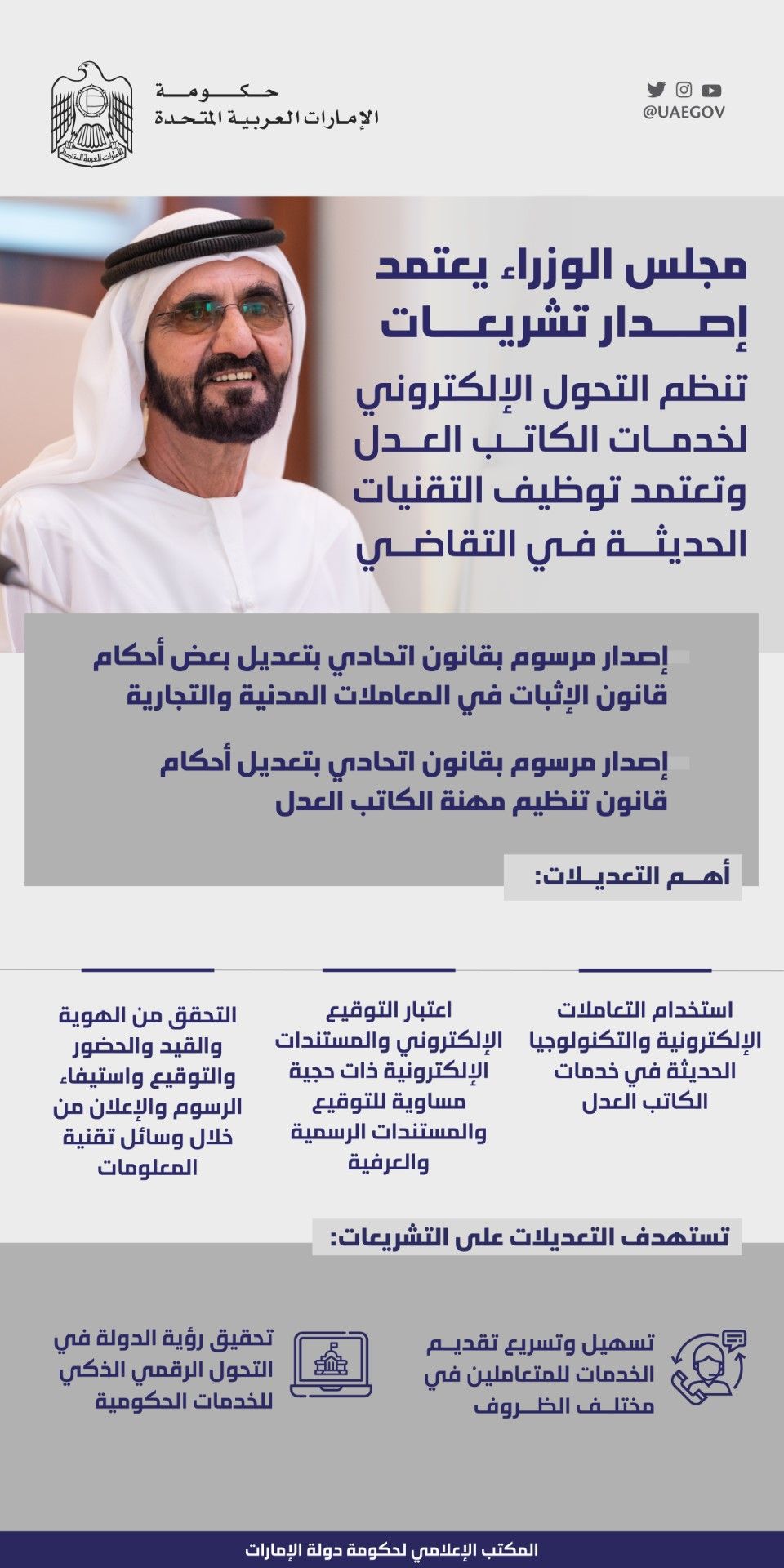The UAE Cabinet held a meeting, chaired by His Highness Sheikh Mohammed bin Rashid Al Maktoum, Vice President, Prime Minister and Ruler of Dubai, to approve the issuance of a federal decree-law to amend certain provisions of the "Law on Evidence in Civil and Commercial Transactions''.
It also approved the issuance of a federal law to amend certain provisions of the law regulating the notary public profession.
The cabinet’s legislations will facilitate the provision of services to customers and achieve the country’s vision to complete the smart digital transformation of government services, by adopting the e-government versions of litigation and notary public services while ensuring confidentiality, speed and flexibility, in line with national information security regulations and policies, both at federal and local levels.
The amendments to the Law on Evidence in Civil and Commercial Transactions includes the introduction of remote communication technologies in evidence-related procedures.
The amendments also include the adoption of digital signatures and documents, and legitimises e-hearing minutes that document witness testimonies, as well as the decisions of judges, signed notary documents, and other related provisions.
As part of the government’s efforts to create a safe and sustainable environment for practicing business, conducting transactions, and utilising modern technologies and e-transactions in relevant processes, the amendments to the federal law includes provisions related to regulating the notary public profession, such as simplifying the evidence-giving process for all parties and enabling the use of e-transactions in all notary public procedures.
The amendments also facilitate the creation of memos and the verification of proof of identity, as well as the registration, signing and payment of fees. The Minister of Justice will issue the necessary resolutions to enable the use of information technology in notary public work.
The amendments also stipulate that e-signatures and e-documents will be approved and treated as official documents mentioned in the evidence law.
Under the amendments, documents must be created and saved electronically, and will be kept confidential and may not be circulated, copied or deleted from the electronic system without permission from the relevant administration of the notary public at the ministry.

News Source: http://wam.ae/en/details/1395302884848









